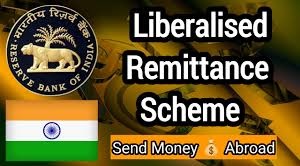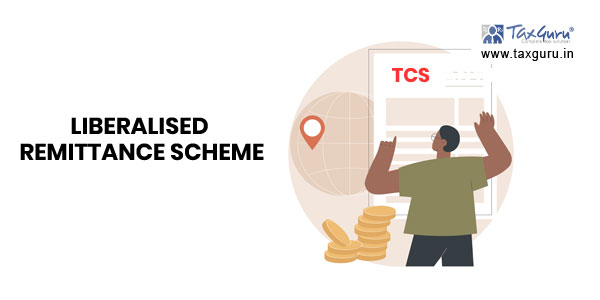If you are a person in India you may remit amount outside India for various purposes such as foreign trip, education, medical facilities, investment abroad, sale proceeds of investment in India, income earned in India. In order to regulate such remittances laws have been framed under Foreign Exchange Management Act, 1999 and Income Tax Act, 1961 which have been discussed in this article.
For such remittances Liberalised Remittance Scheme (LRS) has been framed which is available if you are an Indian resident individual. In that case you may make remittances up to USD 250,000 per financial year (April-March) for any permitted capital/ current account transactions or a combination of both.
What are the Permissible Capital Account Transactions that you are allowed to do ?

Following are the permissible capital account transactions
- Opening of foreign currency account abroad.
- Purchase of property abroad.
- Making investment abroad including mutual funds, VCF, unrated debt securities or promissory notes.
- Setting up of WOS/JV.
- Extending loans including rupee loans to NRI who are relatives.

What are Permitted Current Account Transactions that you are allowed to do ?
- Private visits (other than Nepal /Bhutan including transportation, overseas hotel/ lodging etc.)
- Gift to a person resident outside India/ donation to an organisation outside India
- Going abroad for employment
- Emigration amount exceeding the limit is allowed only for incidental expenses in the country of immigration
- Maintenance of close relative abroad
- Business trip
- Medical treatment abroad
- For education

Are there any prohibited remittances which you cannot do ?
- Capital account remittances to FATF (Financial Action Task Force) non-cooperative countries.
- Transactions which are covered under Schedule-I and Schedule-II of FEM (Current Account Transaction) Regulations, 2000.
Further no bank shall provide you credit facilities for undertaking capital account transactions. However remittance of money for the purpose of education is not considered a capital account transaction.

What is the responsibility of the AD Bank which makes the foreign remittance ?
Bank will collect TCS at the rate of 5% from you on the amount remitted under LRS. TCS is to be collected in excess of INR 700,000 only. If you fail to provide PAN then the AD bank shall collect TCS @10%. AD bank will not to collect TCS if you remit an amount less than INR 700,000 in a financial year. If the remittance is a loan obtained for pursuing any education then the TCS is @ 0.5%. Again if you fail to provide PAN then AD bank shall collect TCS @5%.
What is the liability on seller of overseas tour package?
If you are a seller of an overseas tour package then you have to collect TCS at the rate of 5% from the buyer of such package. If the buyer does not provide PAN then you have to collect TCS @10%.
There is no limit for collection of TCS in the case of seller of overseas tour package. Once TCS has been collected by you as a seller of overseas tour package then AD bank is not required to collect TCS.
Conclusion
Government has made these provisions so that no amount is remitted outside India without being taxed and monitored. We have covered the Liberalised Remittance Scheme of the Reserve Bank of India and the Tax Collection at Source provisions in the above article. There are stringent penal provisions if the above regulations are not followed. Are you following the above provisions for making remittance outside India along with the TCS provisions?
*****
The author is a practicing Chartered Accountant, Senior Partner in Kohli Chitkara & Co. LLP and can be contacted at sandeep@kcccas.com. Any comments or queries are welcome.
Disclaimer: The information provided in this article is for general informational purposes only. All efforts have been made to provide accurate information in this document, however it should not be perceived as a professional or legal advice. Reader should consult a professional before making any decision based upon this document. Under no circumstance author or the publisher shall have any liability to you for any loss or damage of any kind incurred as a result of the use of this information.
(Republished with Amendments)





